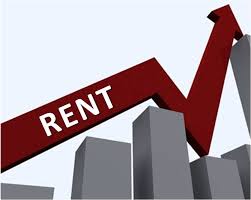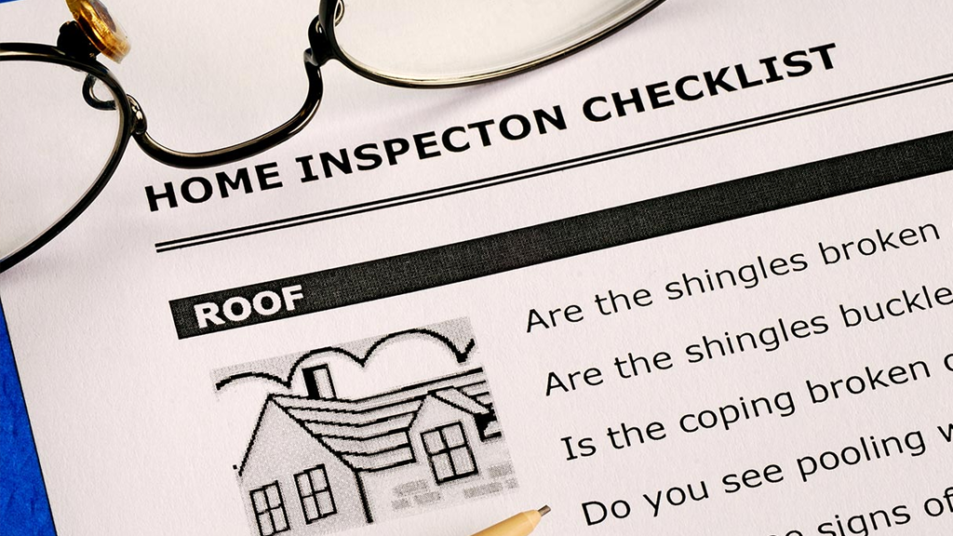Opportunities.
Whether it’s additional streams of income or retirement planning, property Investing is about wealth creation. Creating wealth has always been about mindset and education and that is about to be tested. People do not normally rise up in a crisis, they resort to their training and knowledge to get through it. This means that a crisis such as the CoVid-19 pandemic and following ripple effect is a useful tool to reveal areas for improvement for investors, business owners, and individuals so that you are better prepared for the next one.
As an investor, this is a great time to stop and contemplate where you are right now, are you driven by fear, taking the situation as it is and doing what you can or is your mindset at the next level up to where you are looking for opportunities, learning and making changes and improvements?

It’s easy to be caught up in a negative spiral at this time of the year. There is so much drama and misinformation out there right now and it seems like there are a lot of people spreading fear and confusion so it’s important to practice noticing without owning the negativity. The CoVid-19 pandemic is new and information changes daily as we discover new concepts and this is an important time to expand on your own education about things that impact you, your finances, or industry without being involved in the sensationalism.
What about finances?
The government has announced a 6-month moratorium on evictions in March 2020 and that means that landlords are expected to hold a property for 6 months with no rental income (more on this later).
While the government slogans of “we are all in this together” are splatted all over social media to shame landlords into rent adjustments and acceptance of eviction bans, the fact is that we are NOT all in this together as the new and emerging rules have a different impact on different people.
Self-funded retirees will be affected the most by this decision because they rely on rental income to fund their living expenses, however, apparently, a landlord’s financial situation would be considered by the courts before an eviction moratorium is granted to a tenant.
Self-funded retirees could also be eligible for assistance. Investors who have other sources of income however or sophisticated investors with multiple properties may not be eligible for assistance and an eviction moratorium on their rental properties would mean they are just expected to hold a property for 6 months with no rent coming in.
Although no one likes government decisions that stop rental income for 6 months, decisions like these can be made at the drop of a hat and this is a good time to start planning a safety net into your portfolio.

Homework – Plan to build a safety net.
What can you do or plan to do in your investment portfolio to recession-proof your property portfolio? Saving plan? Putting aside 10% of all income to build a safety net that can get you by in these circumstances. Remember crisis can show what needs to be improved.
What about other investments that can be liquidated when required, Gold, Silver or anything else that can be built up over time and used when required. It’s not really about any investment being better than any other one, it is about getting into a habit of paying yourself first and continuously building a safety net to ensure that you are protected when governments make decisions to stop your income. Remember to the government, a property investor is a “residential housing provider” and they have proven they are not shy in making decisions that protect tenants at the expense of landlords. Landlords will ultimately end up with the bills so we need to ensure we are appropriately funded to do so.
If you are a business owner, what can you do right now is plug into your business to ensure that it keeps going during a crisis? Online services, delivery, working from home? What modifications can you make to ensure the sustainable continuity of your business during a crisis?
If you are employed, what new skills can you begin to learn that will enable you to help make changes to your employment or seek new employment during a crisis?
Health
This particular crisis is a viral pandemic that off course impacts health and it would be incomplete to discuss opportunities and mindset without touching on health.

What are you implementing to ensure you stay at optimal levels of health to give you the best chance of fighting the virus should you be infected? A diet based on real (non-processed) food, water, and not overeating is a great way to start. What works best for you?
A Landlord’s Guide to The Six Month Eviction Moratorium
Although some landlords have voluntarily chosen a rent adjustment to offset vacancies in their investment properties, the 6 months moratorium on evictions is forced on landlords by the government and can be a huge financial burden on some landlords especially if they are self-funded through property or are unprepared with the safety measures as discussed above.
First of all, let’s have a look at what the difference is between a rent adjustment and an eviction moratorium.
Voluntary Rent Adjustment
A voluntary rent adjustment is when a landlord voluntarily decreases the rent to assist a tenant to remain in a property because investing in keeping a good tenant may work out more financially favorable in the long run than a vacancy and an unknown risk with a new tenant.

The government has provided some financial relief for landlords to assist with rent adjustments such as a reduction in land tax but the landlord ultimately chooses to bear the cost of the rent adjustment to benefit the tenant.
Although rent adjustments at this stage are voluntary, the risk of not providing one is that a tenant will vacate the property if they are unable to commit to the current rent and certainly there has been a huge amount of tenants moving out of rentals and into sharing with friends and family in the last 6 weeks – and yes this CoVid-19 story has been only in the last 6 weeks although it feels like forever.
The risks of a tenant vacating the property are vacancies that can be recouped from tenants in a break lease situation or covered by insurance.

At this stage, the rental market is remaining stable and properties are renting in timeframes similar to pre-CoVid so the risks are minimal to landlords. Vacancies, however, can be higher in high-end properties (over $1000 per week) where the market is naturally smaller so landlords may want to mitigate those vacancies by making a small adjustment for a few months to assist tenants in remaining in properties.
The Australian government is providing a lot of assistance to offset income loss and with all the stimulus packages for small businesses and employees, tenants will quickly return to rental properties helping the market to remain strong.
Australia, and especially South Australia has also proven to be a safe haven when it comes to handling a pandemic situation and this alone could stimulate migration into the state and increase rental demand in future months.
The Six Month Eviction Moratorium
Before we discuss the eviction moratorium, let’s have a look at the process of arrear’s control in a tenancy.
Under normal (ie non-pandemic) circumstances, a tenant in arrears (for either rent or outstanding water invoices) is breached at 14 to 16 days of rental arrears and legal action follows if the breach is not remedied within the given timeframe. Legal action against the tenant may include consideration for eviction at a landlord’s request, however, the consideration is usually overruled by a SACAT or magistrates court member if arrears are below the bond amount, and the tenant is instead placed on a payment plan to pay off the outstanding arrears.
The payment plan set out by SACAT or magistrates court order is usually the normal weekly or fortnightly rental amount with an additional amount added that would go towards paying down the arrears. For example, if rent is $400/week and there is $1500 owing in arrears then the tenant may be asked to pay $500 per week for the next 15 weeks until the arrears amount is zero. Time is also considered and a payment plan to reduce rental or water invoice arrears is usually handled within the term of the tenancy. In the example given, there would need to be at least 15 weeks left to the end of the tenancy term and if there is less than the weekly amount to be paid back above the rent is increased.

There are consequences to not adhering to payment plans and evictions are one of those consequences. A landlord can apply for vacant possession on a property if rent/water arrears has exceeded the bond amount.
SACAT or magistrates court will usually grant vacant possession to a landlord or property manager if arrears has exceeded the bond amount (usually 6 weeks, 4 weeks however if the weekly rent is under $251/week). If the amount of money owed to a landlord has exceeded the bond amount, vacant possession is granted in 7 days, although a longer time may be granted to tenants under some circumstances.
Once a bond is exceeded the financial risk to the landlord is high so vacant possession of the property is granted to mitigate financial losses by placing the property on the market for a new tenant and restoring income to that property. It also minimizes further debt owed by the tenant because rent arrears will increase every week that the tenant resides in the property.
If a tenant is unable to pay back arrears owed above the bond, the landlord can choose to make a claim on landlord insurance for any rent lost during the term of a tenancy. Vacant possession granted quickly if arrears exceed the bond also minimize the risk to insurance companies because properties are put back on the market as quickly as possible for a new tenant. Insurance companies will usually cover all rent losses up to the time of a new lease. Please note however that some policies have excess limits and therefore best to check and seek advice on current policies.
The job of a property manager is to mitigate risks for landlords by taking prompt legal action and possession of a property as quickly as possible if arrears have occurred and re-advertising the property to mitigate losses for all concerned including tenants and insurance companies.
A 6-month eviction moratorium is a spanner thrown into the arrears control protocol.
In late March 2020, the government has announced a 6-month eviction moratorium on residential tenancies (essentially a ban on evictions) meaning that tenants can remain in arrears for 6 months without a landlord or property manager is able to mitigate financial losses. Not only are arrears allowed to exceed the bond, but they are also allowed to exceed the bond by 20 weeks making it a total of 26 weeks without any legal action or payment plans put in place to offset financial losses for the landlord. This is out of control arrears.
The eviction moratorium has been put in place to assist tenants facing financial hardship as a result of the CoVid-19 pandemic but the hardship has been pushed onto landlords and insurance companies and also further down the track for tenants.
What happens after 6 months?
It’s important to understand that an eviction moratorium is not a “rent-free” period and it is not a voluntary rent adjustment offered by a landlord, it is essentially a ban on being evicted as a result of arrears exceeding beyond the time frame where legal action against the tenant would normally take place. In the past, only an incompetent property manager or self-managing landlord would allow arrears to accumulate for 6 months, this is property management nightmares but there you have it, the government has made every property manager behave incompletely in mitigating losses for our clients with one easy change to legislation.

Legal action can take place after 6 months however throwing a spanner in the works of the arrears control protocol makes things very uncertain.
For example, if arrears have been allowed to accumulate for 6 months then how can they be handled by the tenant within the term of the lease? For an average tenancy with a weekly rent of $400 per week, 6 months of arrears are over $10,000. The maximum amount of time left on a 12-month lease would be 5-6 months and that means that a tenant would be paying $800 – $900 per week to pay off arrears which of course would be impossible for most tenants. One possible solution would be to extend the term of the lease giving tenants a longer time.
As an aside – eviction moratoriums also apply to end of fixed-term leases, meaning that a landlord cannot end the lease at the end of a term during the CoVid-19 Pandemic.
Another possible scenario would be another rule passed where a tenant is given rent forgiveness and landlords would be expected to wear the loss of rent with no means to recoup. The ripple effect of this scenario playing out is disastrous.
However, the most likely scenario is that tenants will abscond or move on at the end of the tenancy owing rent to the landlord which they will be unable to pay. That ultimately means that landlords insurance companies will be facing very large and very unusual rent default claims of up to 6 months of rent loss without any form of mitigation along the way. Indeed insurance companies are starting to put stops on new clients and new investors entering the market right now may not be able to be insured due to the high risk of very large rent defaults.

So Can Tenants Just Stop Paying Rent?
The great news for landlords is that this answer is NO.
To be eligible for a 6-month eviction moratorium, a tenant needs to prove financial hardship as a result of being affected by the CoVid-19 Pandemic. This means that tenants need to fill in a financial hardship form proving their circumstances and property managers and landlords need to follow the normal arrears control protocol breaching tenants at 14-16 weeks of arrears and following through with normal legal action at the expiry of the breach notice. A moratorium will be granted to eligible tenants by SACAT or magistrates court order.
Not all tenants are eligible and tenants have been shocked by eviction orders granted to property managers and landlords due to an inability to prove financial hardship as a result of CoVid-19.
The landlord’s financial circumstances may also considered when courts are making a decision on whether to apply the moratorium and tenants can still be evicted if they are eligible but the property is the only source of income for a landlord. However, this is theoretical and there is little or no precedence where a landlord’s circumstances are considered and certainly none for the CoVid-19 pandemic.
Landlords or property managers just allowing tenants to not pay rent without prompt action through court orders are negligent in the management of a property. In not adhering to the normal arrears protocol and taking legal action, the non-payment of rent by a tenant can be deemed as a voluntary rent adjustment and there is no chance of ever recouping rent loss in this case.

So in summary, property managers and landlords are urged to follow proper rent control protocols even when faced with a government procedure that has currently hijacked the protocol allowing tenants to get into 6 months of arrears.
There may be a scope to recoup rent loss through insurance or a tenant payment plan if procedures have been followed.
Not all tenants are eligible for an eviction moratorium and they need to apply for and prove financial hardship. At least, in theory, a landlord’s financial position may also be considered.
A rent adjustment vs vacancy losses can be considered especially for high-end properties which are more difficult to lease during a time of crisis. Some stimulus packages and a reduction in land tax can be offered to landlords to elevate some of the losses of a rent adjustment.
A 6-month eviction moratorium is a financial burden for landlords and how it is handled at the end is uncertain with the most likely scenario being recouping arrears through a very long term payment plan with the tenant or claiming rent loss through insurance.
Due to the pandemic, most landlord insurance companies consider new investment properties as high risk and not taking them on.
Xenia is the Principal and CEO of Alexa Real Estate and runs the property management side of the business. Xenia developed Alexa real estate from the concept in 2006 starting with the management of her own investment properties and a handful of properties from other family members.
Xenia is married to Angelo Mena and is a busy mum of 3 teenagers Anthony, Emily, and Leonie. She has also enjoyed motivational speaking internationally and in Australia and has been invited to a lot of speaking engagements on the subjects of leadership, business and motivation as well as a published author of 2 books and about 100 more comings up.
Prior to discovering her gift in developing businesses, Xenia was a medical research scientist obtaining a Ph.D. from Flinders medical center followed by a 3-year post-doctoral fellowship at the University of Saskatchewan, Vaccine and Infectious Disease Organisation in Canada.
During her post-doctoral years, Xenia published 8 medical research papers in medical journals and traveled around Canada and the USA speaking at scientific conferences about her, now patented, vaccines and research.
Something no one knows about Xenia – she hates anything chocolate except chocolate.




